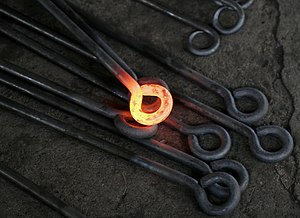What they need are some guiding principles for effectively saying what they believe and what is true. Principle 1. Health care is part of our economic system.
President Obama correctly sees the economy as an integrated system that includes more than just banking. The economy is a system that includes health care, education, jobs, energy, and the environment, as well as an effective, well-monitored banking system and stock market. Real health care is essential for our economy.
Principle 2. Health care is a moral issue.
America was founded on the most central of moral principles: empathy, on caring about and for each other. We are responsible for ourselves and for one another. That is why we have principles like freedom and fairness, for everyone not just the few who are powerful.
To care about our fellow Americans is to care about their health.
Principle 3. Health care is central to the moral mission of the American government.
The American government has twin moral missions: protection and empowerment of the individual - equally for everyone.
Protection includes not just the military and police, but also consumer protection, worker protection, environmental protection, safety nets, investor protection, and health care.
Empowerment is what enables Americans to make a living and have a good life if they work at it. It includes systems of public road and buildings, education, communication, energy, banking -- and health.
No one can make a dime in America or achieve their goals in life without protection and empowerment by America's government.
Principle 4. The President's plan is the American Plan: it fits our principles and serves our people. It represents patriotism at its finest.
The American Plan allows you the freedom to keep your current health plan or choose the American Plan. It is fair in that it allows everyone to afford excellent care. And it allows us to demonstrate in the most visceral way that Americans care about and for their fellow citizens.
Principle 5. The American Plan is a doctor-patient plan.
You and your doctor determine your treatment.
There is no HMO bureaucracy standing between you and the care you get.
Principle 6. The American Plan relieves oppressive HMO government.
Right now HMO's govern your life. Unaccountable HMO bureaucrats decide what treatments you can be "authorized" for and they function to say No to care whenever they can justify it. They make you wait too long, and limit your choice of doctors, clinics, and hospitals. HMO's are oppressive forms of government.
The American Plan diminishes bureaucrats' control over your life. Your American government could act only as a bursar, paying your bills and making sure there is no fraud. Your treatment is up to you and your doctor.
Principle 7. The American Plan provides care instead of denying it.
Why do HMO's have a high administrative cost - 15 to 20 percent or more? They spend money to justify denying you the care you need and all too often delaying care so much that you are harmed by the delay.
The American Plan is there to provide you care, not deny or delay it. Its administrative costs would be low, about 3 percent.
Principle 8. The American Plan costs less and does more.
HMO's are big spenders, not on your health, but on administrative costs, commercials to tout their plans, and profits to investors. As much as 20 to 30% of what you pay does not go to your care. In The American Plan, 97% of what you pay goes for your care. It's a better deal for you and for our country.
Principle 9. The American Plan helps primary care doctors.
HMO's put the squeeze on primary care doctors and have created assembly line medicine. HMO's require doctors to take too many patients per hour, more than they can effectively treat. And they pay doctors as little as possible per patient, so that the HMO's make greater profits, while your doctor loses out -- and you may lose your doctor.
As a result, many thousands of primary care doctors have left their profession. The American Plan will bring back the primary care doctors, paying them what they are worth, and letting them practice medicine instead working on an assembly line.
Principle 10. The American Plan will make prescription drugs cheaper.
Why? Because they can be purchased in greater volume and at a discount.
No longer will Americans have to go to Canada to buy their meds, or order them from other countries. No longer will the cost of medicine threaten to bankrupt older Americans on a fixed income.






![Reblog this post [with Zemanta]](http://img.zemanta.com/reblog_e.png?x-id=10a552a9-e8cc-4bb9-a3ec-001f00e45400)

![Reblog this post [with Zemanta]](http://img.zemanta.com/reblog_e.png?x-id=dfd650a5-54c7-4a6a-95d4-186f9592065b)



![Reblog this post [with Zemanta]](http://img.zemanta.com/reblog_e.png?x-id=a5481b2d-73b6-4df7-aa1b-c73f177aac5a)

![Reblog this post [with Zemanta]](http://img.zemanta.com/reblog_e.png?x-id=3aff14c5-aaf0-49bd-a3cf-9933e95d33f3)

![Reblog this post [with Zemanta]](http://img.zemanta.com/reblog_e.png?x-id=b360716f-987c-43d3-b574-3be79f9021b8)

![Reblog this post [with Zemanta]](http://img.zemanta.com/reblog_e.png?x-id=d57e1899-7333-4117-a55d-8a2be65a49d2)

![Reblog this post [with Zemanta]](http://img.zemanta.com/reblog_e.png?x-id=6f57ac8f-b218-4ddb-a6a1-cc63d2d6723c)

![Reblog this post [with Zemanta]](http://img.zemanta.com/reblog_e.png?x-id=675eaa5c-6d23-48dd-9906-1c1ef071ad7e)


